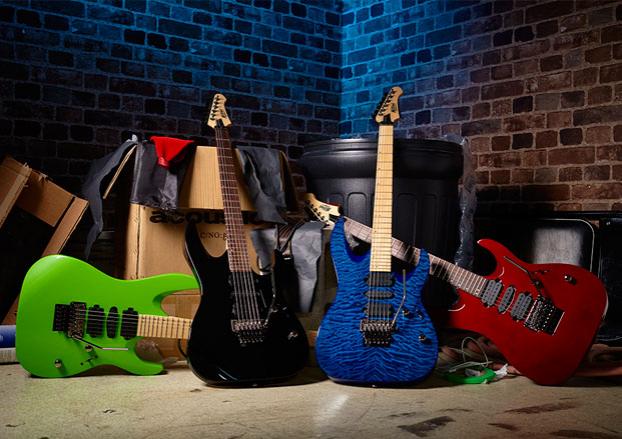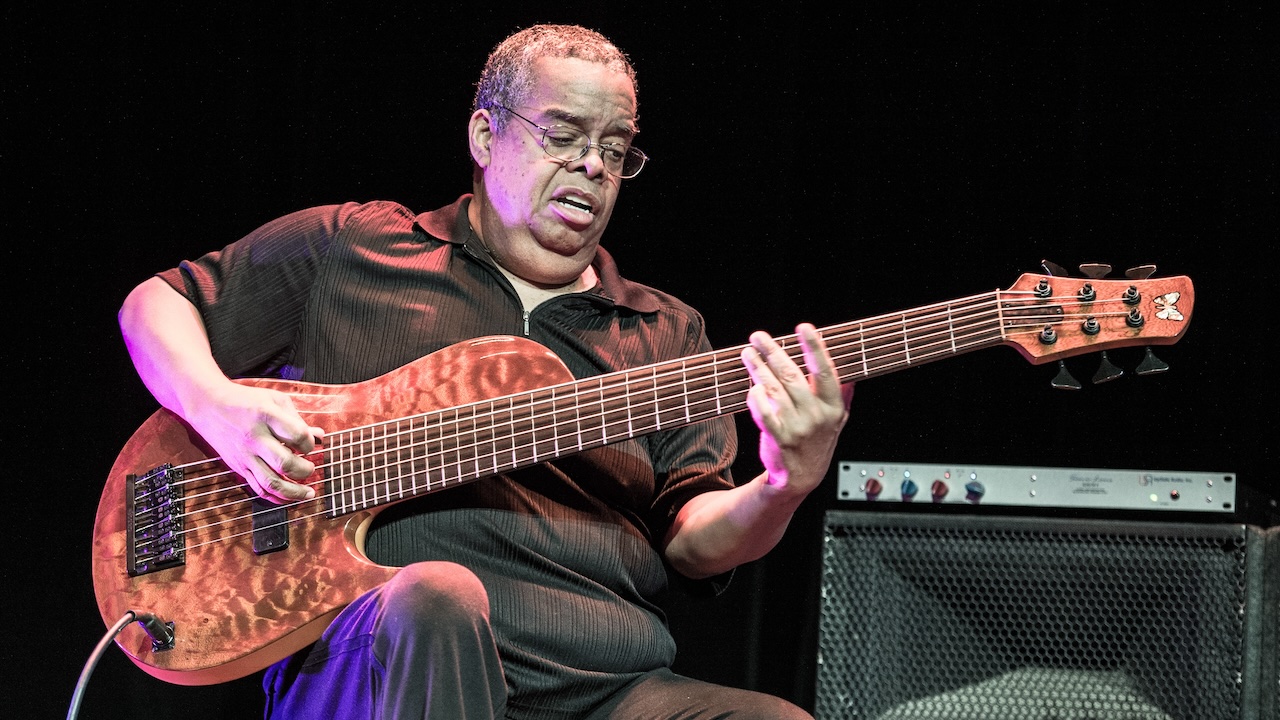Review: Mitchell Guitars HD400 and TD400
All the latest guitar news, interviews, lessons, reviews, deals and more, direct to your inbox!
You are now subscribed
Your newsletter sign-up was successful

GOLD AWARD
Since 1986, Mitchell Guitars has built high-quality acoustic guitars that offer incredible value to beginning and experienced guitarists alike.
Last August Mitchell announced its first line of electric solidbody instruments, and like the acoustics they’ve built for the last 30 years these new electrics also deliver mind-boggling bang for the buck. Mitchell’s new electric venture made its debut in a big way, offering seven different series of guitars, which include the mini MM100 that sells for less than $100 and the single cutaway MS400.
Coolest of all is that, unlike most low-cost guitars on the market, there’s nothing generic or run-of-the-mill about these guitars, which boast excellent craftsmanship, high-quality parts, and custom design aesthetics normally found on much more expensive instruments.
The HD400 and TD400 guitars that Mitchell sent us to review, which represent the upper echelon of Mitchell’s offerings (models with the 100, 200 and 300 suffix are even more affordable), are impressively equipped with quality tonewoods with names that guitarists recognize and can pronounce and name-brand hardware that doesn’t require replacement after a few weeks of playing. A lot of know-how obviously went into these guitars, and Mitchell’s 30-year history of building quality affordable guitars clearly is on display here.
FEATURES
The HD400 and TD400 represent two different approaches to the time-honored asymmetrical double cutaway solidbody design, with the HD400 being a hot-rodded modern “super Strat” while the TD400 has more traditional and classic design features. Our HD400 has a basswood body with a transparent blue finish that reveals the figured quilted maple laminate top and a rock maple bolt-on neck with maple fretboard, slim “C” profile, 24 extra jumbo frets, 25 1/2–inch scale, and two-way adjustable truss rod.
Pickups consist of high-output, paraffin-dipped, high-output neck and bridge ceramic magnet humbuckers and a ceramic magnet center single-coil. Rounding out the main features are master volume and master tone controls, a five-way blade pickup selector switch, and a licensed double-locking Floyd Rose Special tremolo system. The TD400 comes with an alder body and a rock maple bolt-on neck with Indian rosewood fingerboard, shallow “D” profile, 22 jumbo frets, 25 1/2–inch scale, and two-way adjustable truss rod.
All the latest guitar news, interviews, lessons, reviews, deals and more, direct to your inbox!
This model features a bridge humbucker and center and neck single-coil pickup configuration, and the pickups have Alnico V magnets. Controls also consist of a five-way pickup selector and master volume and master tone knobs, but the tone knob can be pulled up to engage coil splitting on the bridge humbucker. Hardware includes 18:1 diecast tuners with staggered-height posts, a Graph Tech Tusq XL reduced-friction nut, and a Wilkinson VS50-II dual-point fulcrum tremolo with nickel finish.
PERFORMANCE
Whoever it was that designed these Mitchell models, they certainly are very familiar with what players need and want. The HD400 boasts generously sculpted belly and forearm contours as well as inner cutaway contours that facilitate access to the uppermost frets. The TD400 has more traditional belly and forearm contours, and both models have a modern rounded neck heel with offset mounting bolts that also provide easier access up the neck. Both models are light, comfortable and well-balanced in both seated and standing playing positions. While the necks on each model have different profiles, both provide outstanding playability and immaculate fretwork.
The TD400’s neck may be slightly beefier, but it still plays quite fast and comfortably, while the HD400’s neck has the slim, fast feel that modern shredders prefer. Plugged in, the tone of both models impress as well, with the HD400 having a more aggressive growl thanks to its high-output humbuckers and ceramic magnets as well as the lightning fast attack and dynamically responsive resonance of its basswood body. The TD400 delivers classic triple single-coil tones that are in a class well beyond its brethren in its price range, and the added punch from the bridge humbucker is welcome for guitarists who want to rock even harder. •
In a blindfold test, most guitarists would guess that these instruments probably sell for three to four times more. Even more impressive is that those opinions likely wouldn’t change when the blindfolds were taken off. These Mitchell models offer incredible value, and beginning players who start with one will likely become players for life.
LIST PRICES: $449.99 (HD400, as tested with trans blue finish), $399.99 (TD400)
MANUFACTURER: Mitchell Guitars, Mitchellelectricguitars.com
• The HD400 features neck and bridge humbucking pickups and a center single-coil pickup with a high-output, ceramic magnet design.
• The TD400 features a bridge humbucker (with coil tap switch) and center and neck single-coil pickups featuring a vintage-voiced Alnico V magnet design.
• Hardware on the HD400 includes a licensed Floyd Rose Special double-locking tremolo system set up in a floating configuration.
• The TD400’s hardware includes a Wilkinson VS50-II dual-point fulcrum tremolo and a Graph Tech Tusq XL reduced-friciton nut.
THE BOTTOM LINE
The Bottom Line Whether you’re a beginner looking for an affordable guitar or an experienced player looking for a new ax, Mitchell’s HD400 and TD400 offer incredible value for players searching for high-quality construction and professional performance at an outrageously affordable price point.
Chris is the co-author of Eruption - Conversations with Eddie Van Halen. He is a 40-year music industry veteran who started at Boardwalk Entertainment (Joan Jett, Night Ranger) and Roland US before becoming a guitar journalist in 1991. He has interviewed more than 600 artists, written more than 1,400 product reviews and contributed to Jeff Beck’s Beck 01: Hot Rods and Rock & Roll and Eric Clapton’s Six String Stories.

